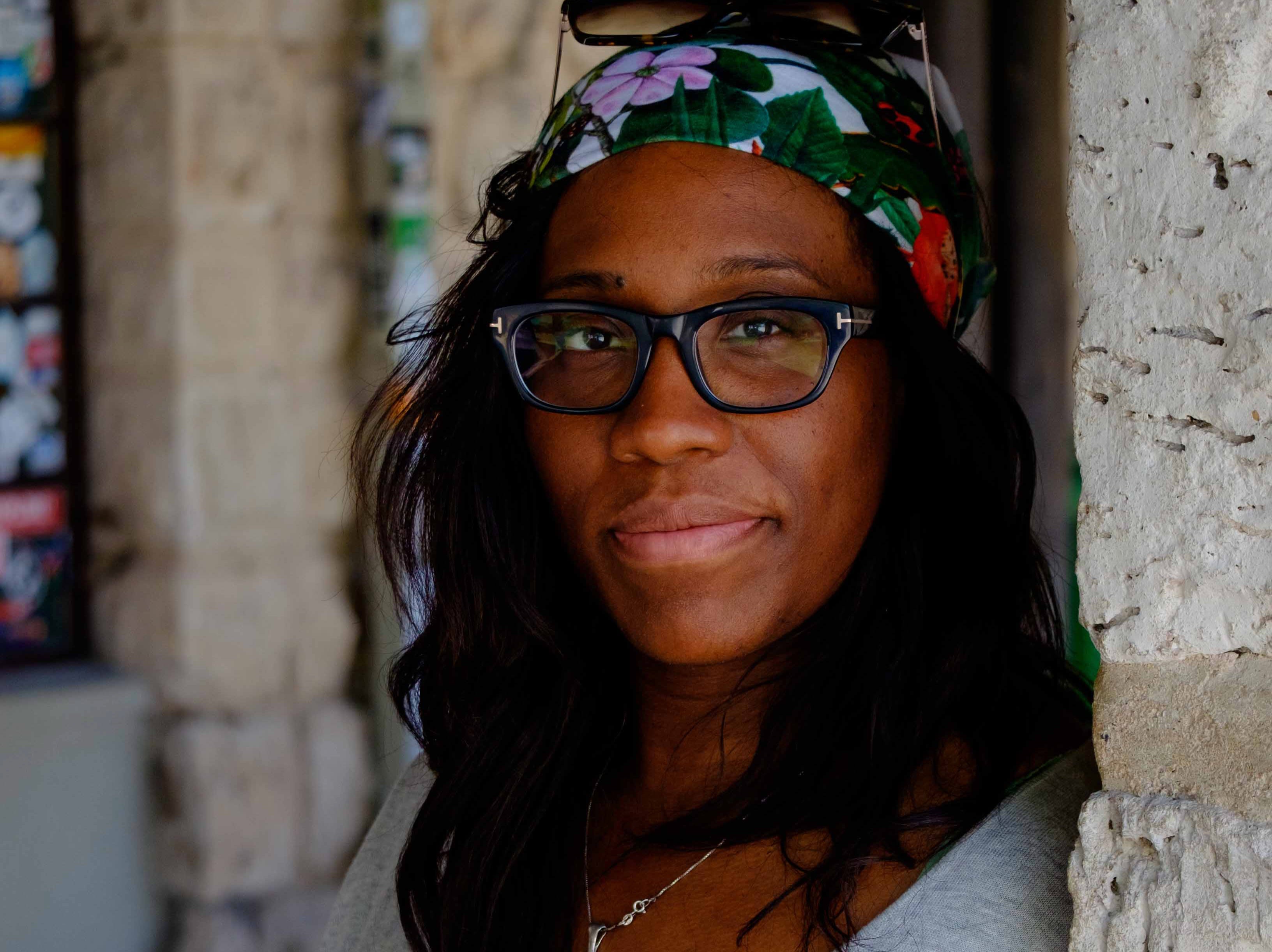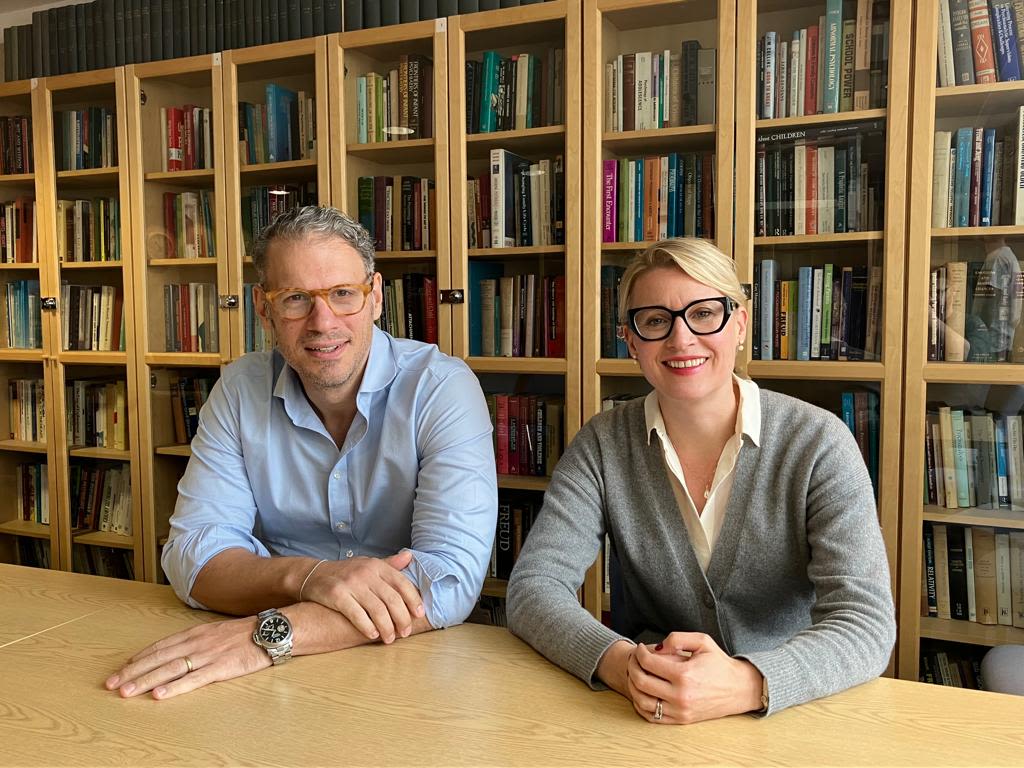How UCL is shaping the world's mental health
The World Health Organisation estimates that almost one billion people live with a mental health disorder. In pursuit of solutions, UCL is harnessing a wealth of multi-disciplinary expertise to transform how the world understands and approaches mental health.

With our societal infrastructure struggling to keep pace with the scale and complexity of mental health challenges, it is more vital than ever that researchers break down boundaries between specialisms in order to re-shape policy and practice at a local, national and global level.
At UCL, our experts in the basic, clinical, and social sciences, as well as arts and humanities, are doing just that – working in cross-disciplinary collaboration and applying their insights in different settings, reflecting the breadth of ways and places that our mental health can be impacted.
In education: the power of early intervention
Professor Essi Viding (Division of Psychology and Language Sciences) and Professor Argyris Stringaris (Division of Psychiatry) are specialists in child and adolescent mental health as well as holding the posts of Pro-Vice Provosts for the Mental Health and Wellbeing Grand Challenge.
Building on UCL’s established mental health partnerships with local education providers, Professor Viding is leading research into school-based preventative intevention strategies. This work is aimed at helping adolescents with elevated symptoms before mental health problems escalate and they need services.
Funded by UK Research and Innovation (UKRI), the study tests a new intervention with cognitive training using computerised tasks, as well as techniques from interpersonal psychotherapy.
“These essentially develop children’s social skills in a group setting and help them to think about other people and their motivations,” she says. “We also help them to regulate their own emotions and better recognise them in others.”
“The whole idea is that we enable young people to make connections between how they see the world, process information, and behave, and the impact of that on other people; and how those people might impact on their own emotional state.”
“We are measuring any intervention gains and at the same time conducting careful work around how the intervention is implemented and received,” she says. “If it’s successful, it’s a low-resource and high-impact action that we can take and scale up.”
In his role as Chair of Child and Adolescent Psychiatry, Professor Stringaris is also actively involved in a range of projects focused on early intervention. One “very exciting” example – funded by the Wellcome Trust – analyses the mechanics of successful cognitive therapies and what makes them effective treatments for social anxiety.
“It’s great that cognitive therapy works for so many people,” he says. “But the question is: why does it work? To answer that, we are looking at the thought-processes, the feelings, and the brain and physiological mechanisms which underpin treatment response.”
“It can be quite hard to achieve because we need to create a situation which is faithful to the treatment,” adds Professor Stringaris. “But what we want to do is extract the ‘active ingredient’ that really works, and to amplify it so that we can make even more of its potential.”
Both agree that early diagnosis and prevention strategies hold the key to unlocking a lifetime of better mental health and relationships.
“You have to address both individual vulnerabilities, as well as social and societal determinants of mental ill health and you want to do that as early as possible," says Professor Viding.
“We owe it to the next generation to help them thrive.“
In communities: listening to lived experience
Dr Rochelle Burgess (UCL Institute of Global Health) is a qualitative social scientist who uses participatory and transformative methodologies to explore the relationship between mental health and adversity.
Dr Rochelle Burgess.
Dr Rochelle Burgess.
The meaning of each of those terms can shift significantly in different settings and populations.
“The major strands to my work are forced marriages and unions globally; mental health services and systems improvement in low and middle-income countries; and racialised mental health in higher-income nations,” explains Dr Burgess.
Last month, she concluded an Academy of Medical Sciences-funded project in Zimbabwe to chart the relationships between mental health challenges and child marriage and support the development of possible interventions.
“There’s been very limited work around the psychological and emotional trauma associated with early marriage and forced marriage,” says Dr Burgess. “Our study found that the mental health burden among those married young was incredibly high, and my work in that context is to combine advocacy and research.”
“Over the last three years we’ve worked with close to 100 people to build a theory of change, which has been very positive.”
She also continues to work closely with academic and community partners in countries including South Africa and Colombia on interventions which proactively engage societies in dialogue around their mental health needs.
“We’re looking at different types of community-led interventions that can emerge from that work,” says Dr Burgess. “Then, it’s really important to look at how those will combine with formal systems and formal services that are already in place.”
In the UK, she collaborates with black, African and Black Caribbean communities – including young people in south-west London and victims of the Windrush scandal – to look at the primary drivers of poor mental health and how to develop connections to support systems.
In each case, Dr Burgess’ aim is to support social or community interventions; activities or response packages which work to interrupt processes or factors that can lead to poor health or mental health outcomes.
These vary significantly according by context, but typically fall into one of two categories: social or community.
“Social interventions are at the interface of social relationships and socio-structural issues,” she says. “For example, something manifest like poverty has a psychological impact. You need a response which recognises how those things are connected and responds to both.”
“Community interventions are about a collective people who are organised around a shared activity, experience, or place,” she adds. “I want to emphasise that the people who share these things are in the driving seat of what the intervention will be.”
In line with the “transformative” element of Dr Burgess’ work, she is intent that her research not only develops understanding and insights but affects real-time change for those who participate in it.
“It’s very important that we reorientate our principles to make sure we leave something behind.”
“Research can so often feel extractive to these communities,” she explains. “To me, it it’s very important that we reorientate our principles to make sure we leave something behind.”
Back in Bloomsbury, Dr Burgess places a high value on the multi-disciplinary expertise which allows her to explore the field from myriad perspectives. “I can go down the road to Psychiatry, or Psychology and Language Studies, or Neurology and speak to people that I can collaborate with, even if they’re looking at this from a different direction,” she says.
“It’s an incredible platform to tackle global challenges, and that’s how universities should be working in the mental health space.”
In the health service: training future practitioners
“We’ve had an awareness of mental health since the ancient Egyptians,” says psychoanalyst Professor Peter Fonagy OBE (UCL Psychology and Language Sciences). “It has always been there.”
Growing up as a Hungarian child refugee in the UK, Peter experienced severe mental health issues of his own. Yet in the face of depression, language barriers, and academic setbacks, he worked tirelessly – and was offered a place at UCL on the basis of an interview with Professor Philip Johnson-Laird, who would become one of the pre-eminent cognitive scientists of his generation. “It saved my life,” Peter recalls.
Since then, his career has been dedicated to bridging the gap between research and practice in mental health.
30 years ago, he helped to establish the clinical psychology programme at UCL – now the largest in Europe – and is now in his second term as Head of Division. Over the course of his career, he has been witness to huge shifts in our academic understanding of mental wellbeing.
“What we have learned is that mental disorder is a lifelong condition,” he explains. “By the age of 25, four in five of those who receive a diagnosis will have done so. So, it’s a disorder with an early-onset and we know that the longer you allow it to persist, the more difficult it is to treat.”
Peter’s primary concern is that treatment infrastructure has not kept up with demand for mental health services.
“There is a treatment gap between the number of people who have problems and the number of people who are given evidence-based treatment within the health service,” he says. “That gap applies for adults, but sadly very much for children.” He estimates that as few as 30% of young people have their treatment needs met.
Nevertheless, he sees UCL and its tradition of applied psychology as having a vital role to play.
“It has become a major need, and UCL is there to provide evidence-based training in the right areas.”
“The evidence points to psychological interventions being not just the most effective, but also the most desired by those experiencing problems,” says Peter. “It has become a major need, and UCL is there to provide evidence-based training in the right areas.”
It is not only a question of scale – Peter’s division now trains 2,000 psychological practitioners per year – but breadth of expertise, with UCL having the cross-disciplinary expertise to create new programmes which equip their students to deliver a wider range of early therapeutic interventions.
That is coupled with research expertise spanning dozens of related fields, which uniquely positions UCL to help shape mental health treatment guidelines both nationally and internationally.
“Effective interventions for mental disorders and mass health provision within the NHS,” concludes Peter. “UCL is really at the heart of this. And it’s never been more needed.”
Visionary leadership: accelerating UCL’s vision
In 2023, UCL appointed Professors Viding and Stringaris as its first Pro-Vice-Provosts for the Mental Health And Wellbeing Grand Challenge.
Professors Argyris Stringaris and Essi Viding.
Professors Argyris Stringaris and Essi Viding.
Together with a community of experts across disciplines – just like Dr Burgess and Professor Fonagy – they are leading UCL’s response to the challenge and providing a scientific basis for change in how the world prevents, diagnoses and treats mental ill-health.
Looking back at recent years in the sector, both agree that the landscape has evolved rapidly.
“We have seen that to some extent stigma has reduced, but alongside increased awareness and need, we haven’t grown our capacity,” says Professor Viding. “Nationally and internationally, we still need to be training people to do the research and deliver the clinical services.”
“The problems have actually become more acute, not least because of the COVID pandemic,” emphasises Professor Stringaris. “But there is an understanding among policymakers that it's a hugely important area to invest in.”
“It’s vital that we use our research and our evidence base to advise them on how best to do that.”
But UCL’s role is not limited to its influence on decision-makers. Cross-disciplinary research is also directly shaping treatments, ranging from the psychological to medicinal. “Argyris and I are passionately committed to directly improving interventions,” says Professor Viding.
“We want to make them more effective and more bespoke, but we also want to work together with service providers and service users to think about how existing interventions can be more accessible.”
Now – six months into their new roles – the pair are reflecting on their learnings and putting in place their vision for the mental health and wellbeing community at UCL.
“Our work encompasses researchers, students, staff, and partners,” says Professor Stringaris. “When we were appointed, one of the most important things for us was to listen to them and build relationships based on trust. For us, this is the basis of action.”
"We can use this as a platform to accelerate positive change at the basic science level right up to the complex societal level.”
“Now, we can use this as a platform to accelerate positive change at the basic science level right up to the complex societal level.”
“UCL is really invested in this,” adds Professor Viding. “We are tackling the issue using different research traditions and bringing them together to work synergistically rather than doing things in silos. As a result, we’re producing some of the most exciting and diverse work in the field.
“We are in a unique position in the world.”
You can drive innovation in mental health. Learn more about supporting UCL's mental health research.







